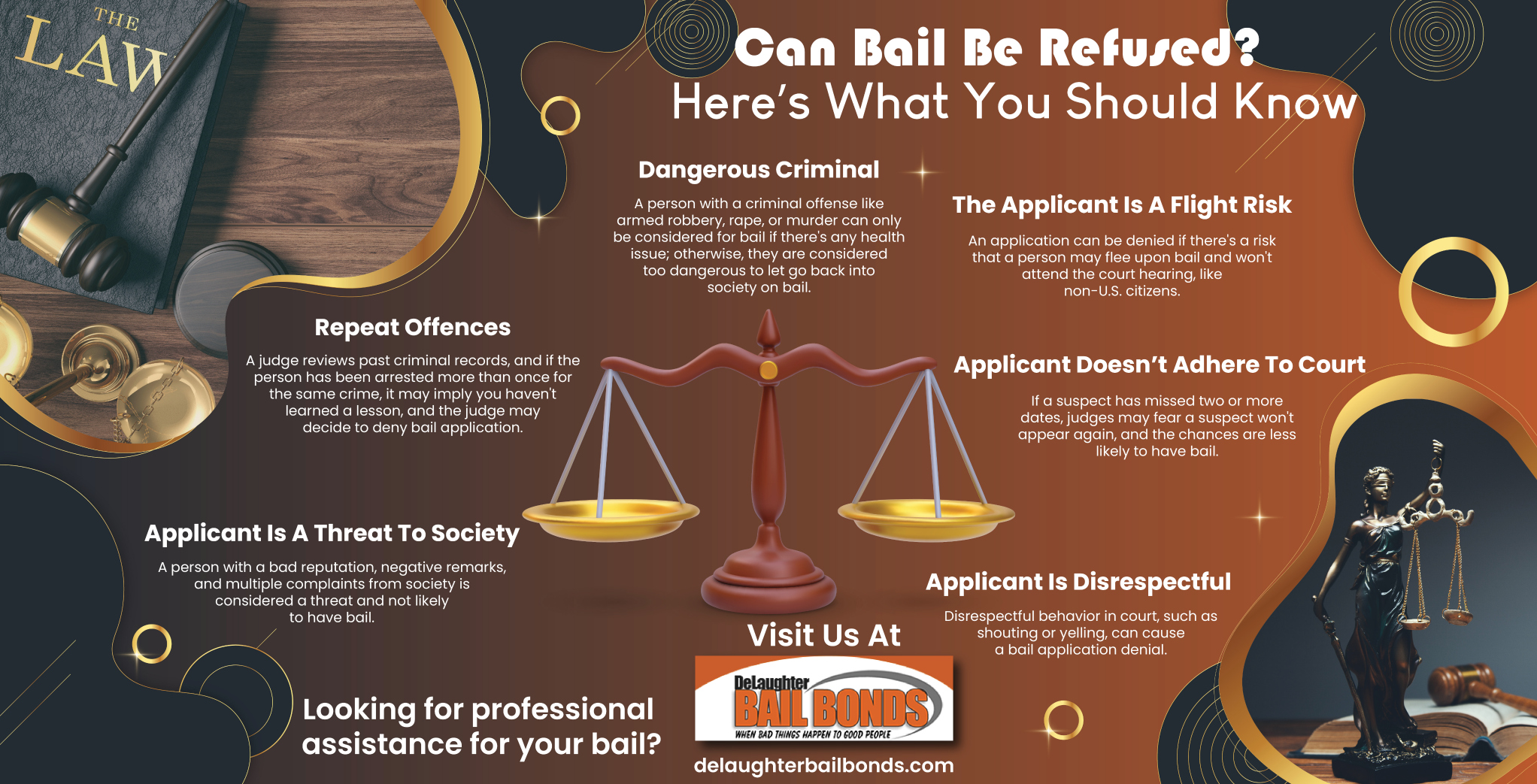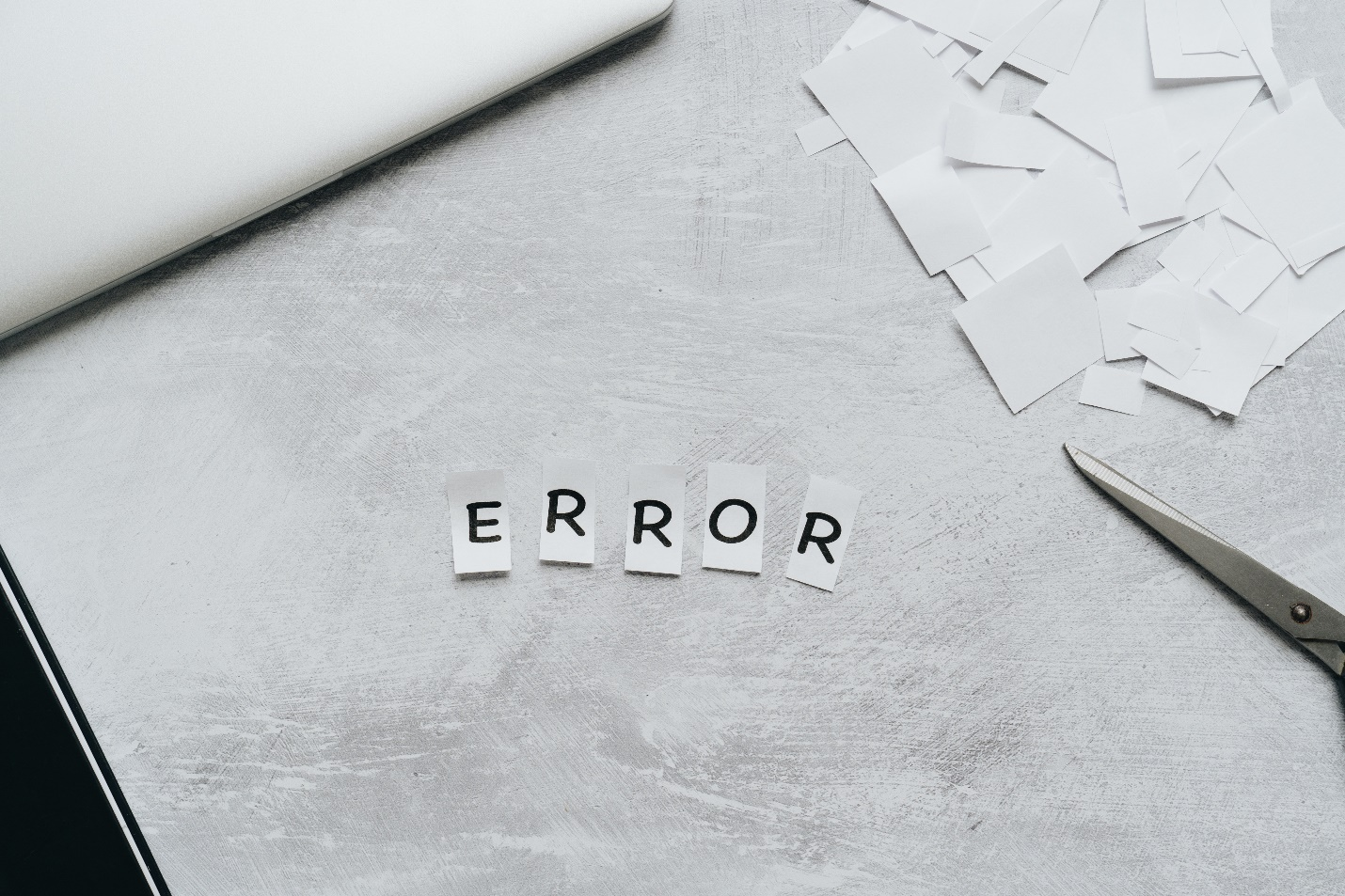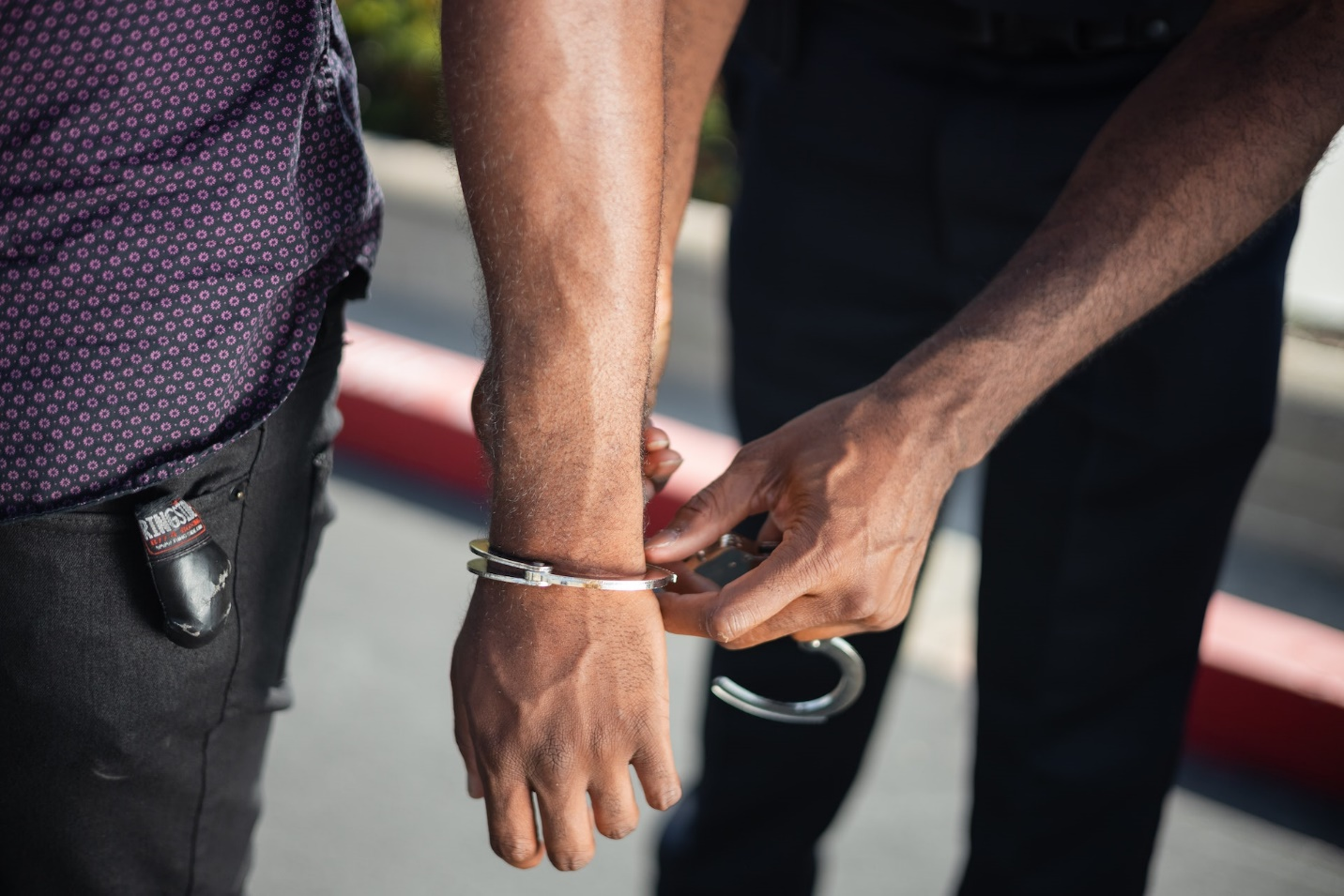
About laynen08

Debunking Common Myths About Bail Bond Companies
When an individual is arrested and facing charges, their loved ones often turn to bail bond agents to help get them out. Unfortunately, with many misconceptions and myths rampant about the bail bond industry, most people find it hard to hire the right company. This is where this blog post can help.
We understand it’s hard to know which misconceptions about bail bond companies are false. That’s why we will debunk some common bail bond company myths in this blog to help you better understand how they function.
If that piques your interest, keep reading.
Myth#1: Bail Bond Companies are Shady and Unethical
One of the most common bail bond company myths is that they are shady organizations looking to make a quick buck. However, that can’t be any further from the truth.
In reality, bail bond companies are heavily state regulated and are required to follow strict guidelines. First, they need to have a valid license to even operate legally, which is issued by the state’s insurance department. The companies also have to go through mandatory background testing and training requirements.
It’s imperative you ask for the organization’s license to ensure you’re not being scammed.
Bail Bond Companies Are Only for The Rich
This is another bail bond company myth that is simply not true.
While bail bond companies charge a fee, their services are primarily for those who can’t afford to pay bail. This fee is 10% of the total bail amount and only covers the cost of the bail bond organization’s services. Moreover, most companies also offer payment plans to help clients unable to cover the charges upfront.
Bail Bond Companies Help Release Criminals
Another popular bail bond company myth is that the organizations only work with criminals. That’s also far from reality. Bail bond companies work with any individual who requires their services, regardless of their charges or history. In many cases, the defendants are innocent but can’t pay bail.
After all, it’s not up to these organizations to give a verdict on who is guilty or innocent. Their responsibility is to simply secure their release until their trial.

If you’re on the lookout for reliable and professional bail bond services in Huntington County and nearby areas, consider us at DeLaughter Bail Bonds. We’re a 24-hour bail bond agency committed to ensuring our clients are out of jail as quickly as possible.
Contact us right now to learn about our bail bond agency.

Bail Bonds 101: Information You Should Know
Have you ever wondered what bail bonds are and how they work? Then this article can help. When a friend or a loved one has been arrested, the last thing anyone would want is to try and understand legal jargon. However, most only learn about them when they need help.
Bail bonds are a critical part of the legal system that can change someone’s life and enable them to get their legal rights.
This blog is a comprehensive guide on things to know about bail bonds in Indiana.
Defining Bail Bonds in Indiana
Bail bonds in Indiana are surety bond that acts as an agreement between the defendant and the court. It guarantees that the individual facing arrest will appear for trial or pay money ordered by the court. This system is only found in the United States and the Philippines.
How Do Bail Bonds Work?
When an individual faces arrest, the judge sets a bail amount to help ensure they show up for their trial. That’s because it is a required money deposit that guarantees the defendant won’t miss the specified dates of the court or skip town.
However, not everyone can pay a hefty amount of money for bail. This is where bail bonds help.
Bail bonds enable people charged with a crime to evade arrest while they wait for the trial. These are a type of surety bond guaranteeing the defendant will appear for trial.
Bail bonds are ensured by bail bond agents acting as the middlemen between the two parties. In return, they take 10% of the bail amount as a fee. If the defendant fails to show up for the trial, the agents pay the full amount to the court.
Types of Bail Bonds
There are several types of bail bonds in Indiana. We have listed some of the common ones below.
- Surety bonds
This is the most common type of bail bond in Indiana. It involves a bail bond agent posting the bail on behalf of the defendant for a fee. They are also responsible for ensuring the accused person shows up for trial.
- Property bail bonds
This bail bond entails the person using their property as collateral to acquire bail.
- Transfer bail bonds
These bail bonds are acquired for someone arrested in a state other than where the bond was initially written.

If you want to acquire a bail bond in Indiana, ensure you partner with a reputable bail bond company like DeLaughter Bail Bonds. We are a bail bond service in Wabash and surrounding areas, committed to keeping you safe till your case is cleared.

Misdemeanors That Bail Bonds are Effective For
Did you know nearly 13 million Individuals are charged with minor offenses yearly?
Although misdemeanors are considered less serious violations, they can nonetheless have a devastating influence on an individual’s life by damaging their relationships and professions and leading to costly penalties and, in some circumstances, imprisonment. Thankfully you can acquire bail bonds for misdemeanors.
If you need clarification on whether bail bonds are effective for the misdemeanor you or a loved one are charged with, keep reading to learn about a few common misdemeanors for which bail bonds are effective.
What Is A Misdemeanor?
A misdemeanor can be defined as a less serious offense with short-term jail sentences spanning less than one year. The common punishments for misdemeanors include probation, community service, fines, and jail time. In many states, misdemeanors are divided into multiple categories based on the severity of the offense and the associated punishment.

Bail Bonds for Misdemeanors
DUI (Driving Under the Influence)
Most drunk driving convictions include misdemeanor charges. In most cases, the punishment for a misdemeanor DUI is penalties. In some cases, a DUI misdemeanor can also result in a prison sentence of around one year.
Disorderly Conduct
Most law enforcement officers would characterize disorderly conduct as an offense or behavior that jeopardizes public peace. In certain states, being intoxicated in public is also considered disorderly behavior.
Numerous types of disruptive behavior fall within the definition of disorderly conduct, such as making a loud noise, fighting in public, or threatening an individual. Law enforcement officers use disorderly conduct charges to preserve the peace when individuals are disruptive to public peace and pose no risk otherwise.
Loitering or Prowling
Prowling and loitering can be defined as an individual maintaining a suspicious appearance at an odd location, hour, or other circumstance that suggests a danger to the welfare of people or property. This crime can result in heavy penalties and a jail term of more than two months and is often classified as a second-degree misdemeanor in most counties.
No Valid Driver’s License
A person driving without a valid driver’s license can also be charged with a misdemeanor and have to pay pricey penalties or serve jail time.
Petty Theft
When caught shoplifting or conducting petty theft crimes, the arrested individuals can be charged with a misdemeanor. Petty theft, by definition, only applies to the theft of items with a value under $1,000.
Get Bail Bonds for Misdemeanors from Bail Bond Services in Miami County, IN
If you need assistance acquiring bail bonds for a loved one in Miami County, you can contact the licensed bail bondsmen at DeLaughter bail bonds, offering 24-hour bail bond services in Miami County.
We have years of expertise in the field, and our 24-hour bail agent will work hard to offer you quick and effective service. You can contact us anytime, day or night, and we will get to work immediately to help get your loved one out of jail. Dial 260-578-0505 now to talk to the experts at our bail bonds agency.

Different Kinds of Bonds and Their Benefits
When referring to types of bonds, it must be kept in mind that each one is different from the others. The most common bail bonds that defendants can use are property bonds, surety bonds, recognizance bonds, citation bonds, and cash bail.
In this article, we will talk about some of the most popular kinds of bail bonds that defendants usually choose.
1. Property Bonds
Property bonds are types of bonds in which the defendant uses property as collateral. However, the full rights of the property must be handed over if a defendant uses property bonds. Usually, individuals end up using real estate as collateral, but they can use anything else as well.
Apart from the main differences between surety bonds and property bonds, property bonds take multiple weeks to process. This is because there are lots of inspections and loads of paperwork that need to be approved before a property bond can be given to a defendant.
2. Surety Bonds
This is the most basic type of bail bond that is given through a 24-hour bail bonds agency. This bond costs the defendant a certain percentage of the bail amount.
These types of bonds are commonly chosen by defendants because usually, bail is set at an amount that most defendants cannot afford. Since they cannot usually afford bail all by themselves, defendants take help from a bonds agency by buying a surety bond and then paying it back over some months or years.
3. Recognizance Bonds

These types of bonds are one of the most popular among defendants because they do not have to pay a single penny upfront.
Similar to citation bonds, recognizance bonds depend on the arresting officer. The only difference is that the defendant will have to visit a court of law to fight for his freedom.
4. Citation Bonds
A citation bond is an option when the defendant is given a citation, most commonly when they have broken traffic rules but were not taken into custody. This usually depends on the citing officer, which means that the defendant cannot appeal or apply for a citation release bond by themselves.
5. Cash Bail
Cash bail is a bail bond that is paid in cash. This is the best option for defendants who have a lot of money, as they can easily afford to pay their bail without worrying about spending even a single night in jail.
As long as the defendant shows up to all the court appointments and court dates, their trial will end. Moreover, the court will also return the cost of the bond to you, which means that in the long run, you do not end up losing any money at all.
Conclusion
With so many types of bonds, it can be easy to get confused. However, the good news is that a licensed bail bonds agent can guide you and help you decide the kind of bond that is right for your circumstance.
Get in touch with Delaughter Bail Bonds to know more!

When Can Surety Bonds Help You Out?
Surety bonds are typically obtained by independent contractors working on expensive government projects. However, other businesses and individual entities can also enjoy several benefits of surety bonds. Keep reading to learn about the benefits of surety bonds and when they can help you.
What Are Surety Bonds?
A surety bond can be defined as a legally binding agreement that guarantees that commitments will be fulfilled or compensation will be offered to make up for the missed responsibilities in the event of failure.
There are several benefits of surety bonds. For example, they pay for damages resulting from legal proceedings, guarantee the fulfillment of government contracts, or shield a business from fraudulent employees. Whenever a contractor fails to complete the project, the surety agency steps in to locate a replacement or pay the project’s owner for the financial losses.

When Can Surety Bonds Help You Out?
There are several types of surety bonds, and they can help you out in different ways. Here are a few common types of surety bonds and their benefits:
- Commercial Bonds: A professional or a company has to obtain a commercial bond if they wish to be acknowledged by the nation as a legitimate business organization. Usually, they have to get a commercial bond before the state issues a license. States utilize commercial bond laws to ensure that professionals follow the law and ethical standards, and anyone who fails to do so is held accountable.
- Contract bonds:These bonds hold a party accountable if they fail to uphold the conditions outlined inside a contract by a third party. Although it can affect other contractual agreements, contract bonds are frequently utilized for construction megaprojects. Contract bonds guarantee that a deal is carried out without interruptions and make the other party responsible for any unforeseen problems.
- Performance Bonds:Performance bonds protect the owner of a construction project when the contractor fails to complete the agreed-upon job. The surety is required to intervene in this situation and take appropriate action.
- Fidelity bonds:These bonds safeguard a company’s customers if one of its employees has committed a criminal offense. Businesses are not obligated to obtain fidelity bonds. However, many do so as a risk management strategy. In addition, fidelity bonds function similarly to insurance policies since the surety compensates the bonded person.
- Court Bonds:Before approving the continuation of legal procedures, a judge may order the acquisition of court bonds. The court bond imposes financial penalties on the bonded individual for noncompliance with the court’s orders.
Bottom Line
Do you want more information on surety bonds and how they can help your loved ones in jail? You can contact the experts at DeLaughter bail bonds to learn how court bonds can help you.
Our experts have been offering 24-hour bail bond services in Huntington County and have helped many individuals acquire the right kind of surety bond, depending on their situation. Dial 260-578-0505 to contact the experts at our bail bonds agency.

Want to Avoid Bail Fraud? Here’s What You Should Do
When you are trying to post bail for your loved one, emotions can be high. However, this does not mean that you can afford to be careless. You must ensure that you avoid bail fraud.
Bail bond scams are so common that you might not even realize that you are being roped into a scam till it is too late. However, here are some tips that can help you avoid bail fraud:
1. Do Not Fall for Cold Calls
According to the law, 24-hour bail bondsmen cannot offer their services to detainees and their family members through cold calls. In case a bail agent calls you even though the defendant has not asked them to, make sure that you do not reveal any personal information.
The law does not allow bail bond services to be advertised in police stations, jails, and courtrooms.
2. Fake Error
If you get a call when you are not expecting one and you are told that there is a mistake with the bail bond of your loved one, do not believe the caller. You might be told that the bond is underpaid, and the defendant will be put into jail again unless the money is not paid upfront.
If you want to avoid bail fraud, you must keep in mind that scammers have access to public records and contact details of clients who are registered with any 24-hour bail bonds agency. The person on the other end might already know that your family member has posted bail recently, but this data can be found by any random person on the internet.
The scammer will want you to react fast instead of considering the facts. If you get any kind of call where the person on the other end is asking for an immediate payment, do not make a hasty decision.

3. Intimidation
Some 24-hour bail bondsmen use intimidation as a tactic. This is why a defendant should always be aware of their rights. For example, you cannot be detained if there is no warrant for your arrest. It doesn’t matter if you owe them some money- they cannot detain you without an arrest warrant.
If the bail bond agent tries to threaten or yell at you, you should consider this as a red flag. Hence, you should always pick a bail bonds agency that has good reviews- look through the internet and do ample research before choosing the company you want. Moreover, never ignore your gut feelings.
4. Random Discounts
Bail bond companies offer fixed prices for the service they offer- they have to follow these rules as per the law. If you find a company offering you a massive discount on their services, do not think that you are getting a good deal.
In fact, anyone offering you a huge discount is probably a scammer.
Conclusion
Are you looking for a reliable bail bonds company that can help bail your loved ones out? Delaughter Bail Bonds has plenty of experience uniting loved ones in jail with their families. Get in touch with us today so that we can get the process started!

Types Of Bail Bonds


Common Misdemeanors That Get People Arrested
Many individuals confuse misdemeanors with felonies. However, misdemeanors refer to criminal acts that may not be as severe as felonies. Although misdemeanors are less serious than felonies, you may face significant penalties or jail time if convicted. Knowing the most frequent misdemeanors for which people are arrested might help you avoid them.
Below is a list of common misdemeanors that can get you arrested.
Common Misdemeanors That Get People Arrested
Here is a list of a few common misdemeanors that usually get people arrested:
Indecent Exposure
It is easy for many individuals to misinterpret this misdemeanor since it could mean different things to different individuals, and every jurisdiction could have a different concept of it. In most regions, it entails voluntarily urinating in public or displaying one’s private parts to another individual.
Public Intoxication
In some regions, being intoxicated in public is considered a misdemeanor. It is mostly described as acting disorderly when impaired by drugs or alcohol on private or public property.
The penalties for this offense might vary since it is dealt with locally. Although certain states do not have laws prohibiting intoxication in public places, some counties and localities do.
Basic Assault
Basic assault can mean hurting an individual without intending to cause an injury. However, how a basic assault is interpreted usually depends on the responding officer and the state.
The assault might imply that you intentionally intended to hurt somebody or made unwanted touch, no matter how friendly. However, one exception to this legislation is that if an individual assaults a law enforcement official, their crime will be considered a felony.

DUI (Driving under the influence)
Driving a vehicle when intoxicated by a drug, usually alcohol, is known as a DUI, which stands for “driving under the influence.” Many individuals may be unaware of this; however, one can also get a DUI if one takes prescription medication or illegal drugs.
Certain states refer to a DUI as OWI, meaning “operating while intoxicated.” Usually, states like Michigan, Indiana, and Wisconsin use this phrase.
Trespassing
Trespassing can be described as unauthorized entry into a restricted property area. You will commonly notice signs prohibiting entry in areas where visitors are not welcome.
Trespassing is sometimes punished similarly to receiving a parking fine. However, this varies greatly on where you live. The majority of government officials, as well as the police and those who work with utility meters, are exempt from trespassing regulations.
Bottom Line
Witnessing a loved one get arrested and charged for a misdemeanor can be challenging. However, if you want to get them out on bail, you can do so with the assistance of the 24-hour bail bond services in Whitley County offered by DeLaughter bail bonds.
The team of experts at our bail bonds agency has the knowledge required to guide you through getting an individual out on bail for a misdemeanor and will ensure the process goes as smoothly as possible. You can contact our 24-hour bail agent by dialing 260-578-0505.

Answering Your Questions about Bail Bonds
It is common for individuals who do not have prior experience in getting bail bonds to have several questions and feel confused about the process involved in acquiring them. We have compiled answers to common bail bond FAQs to help clear some of your concerns.
Answers to Common Bail Bond FAQs
1. Who Determines The Bail Sum?
The judges in charge of a case are the ones who determine the bail value. The judge considers factors like the severity of the crime, the likelihood of an individual committing the crime again, and the chances of a defendant fleeing from the jurisdiction before the trial to determine the bail amount.
2. How to Get a Bail Bond?
There are several ways a person can get a release from custody. You can hire licensed bail bondsmen, post-money for the entire bond value with the jail or court, or use real estate to pay off the bail amount.
3. Can An Individual Out On Bond Leave The Region Or The Country?
Before leaving the county or state, you must obtain written approval from your bonding office. Before traveling, you must get approval from your bail bond agency and the judge. You may get arrested if the judge has issued specific orders for you not to leave the region or nation and fail to follow the orders.

4. What Should I Do If I Believe The Defendant Won’t Attend Court Once I Pay The Bond?
If you think the defendant will fail to attend the court once you pay the bond, you must contact the bondsmen at the bail bonds agency to discuss what you can do to avoid this from happening.
5. What Items Are Acceptable As Collateral For Bail Bonds?
Bail bondsmen will take a variety of collateral, including jewels, bonds, stocks, vehicles, credit cards, and real estate. It is recommended to speak with your bail bondsmen for further information on what may be used as collateral for a bail bond because each bail bonds agency is different, and some may accept certain items while others may not.
6. Is A Bail Bond Agency The Sole Option For Releasing Someone From Custody?
There are two options for individuals seeking to release their loved ones from jail.
- You can hire a licensed agency like DeLaughter bail bondsfor Bail Bonds in Whitley Countyor other counties in Indiana.
- You can simply submit the entire bail amount. A complete return of the bail money may be granted. However, this method has several drawbacks since there can be unpaid court costs and fines. The fact that it occasionally takes the court anywhere between a year or two to return your funds is another drawback of this bail payment method.
Get Answers to More Bail Bond FAQs from the Experts at Delaughter Bail Bonds
If you have more queries about bail bonds and want answers from the top bail bondsman in Whitley County, feel free to contact the experts at Delaughter bail bonds. We can help guide you through acquiring bail bonds and clear any confusions you might have.
Get in touch with our licensed bail bondsmen now.



